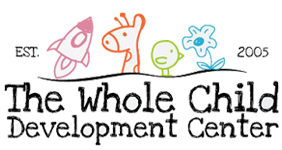![The Benefits of Learning to Socialize at an Early Age Human beings, like many animals, live in social structures, as parts of social groups, communities, and societies. These groups have rules, norms and acceptable behaviors and practices that we learn over time. Nobody is born knowing what to do and what not to do. Not even the wisest, most perceptive or adaptable adult was ‘born […]](https://www.wholechilddevelopmentcenter.com/wp-content/uploads/2020/03/Picture3.png)
Human beings, like many animals, live in social structures, as parts of social groups, communities, and societies. These groups have rules, norms and acceptable behaviors and practices that we learn over time.
Nobody is born knowing what to do and what not to do. Not even the wisest, most perceptive or adaptable adult was ‘born this way.’ We don’t realize the ways we’re socialized and taught what to do and what not to do, because it’s a gradual process that takes place over different phases of our lives.
From the home to your school, all the way through to adulthood, you keep picking up on things that are expected of you. This is why it’s incredibly beneficial for children to begin socializing at a young age.
It helps with socialization
Socialization begins in the home, where we teach kids how to speak, interact, and talk to people but often the rules at home are very different from the rules of the outside world. Some families are a lot more lenient with their kids, while others are stricter. Some parents are okay with letting their kids wear nothing but diapers during playtime, or to eat their midday snack in front of the screen. In a daycare, however, the rules are the same for everyone, and kids learn discipline and the value of social behaviors.
Teaches them the importance of teamwork and sharing
Even if you have more than one kid at home, it’s unlikely that you have enough for a large group. In social settings like child-care, pre-school or after-school programs, kids engage in activities that encourage teamwork, playing together and sharing. It’s important to learn the value of these early on because they become valuable skills in later life too.
 Kids will learn how to respect and accept other people’s opinions, give and take, manage emotions and outbursts that would otherwise be tantrums that are indulged at home.
Kids will learn how to respect and accept other people’s opinions, give and take, manage emotions and outbursts that would otherwise be tantrums that are indulged at home.
Helps develop inter and intra personal intelligence
Both types of intelligence are valuable for growth, benefiting individuals in different ways. Interpersonal intelligence helps develop deeper, more meaningful connections with others. They develop better communication skills, empathy and pick up on social cues.
As for intrapersonal skills, socializing can help those too. When you’re in situations that lead to you evaluating and reflecting on your actions, decisions, and thoughts, manage emotions better, you’re growing exponentially.
Builds self-confidence
You know that shy, angel-faced tot who clings to your leg or turns their face away every time somebody says hi? Being part of a social group will help them build self-confidence and a sense of belonging. It will gently nudge them out of their comfort zone and teach them to trust their instincts and abilities.
You can trust our child-care center in Lenexa to take good care of your little one, helping them mingle with peers, encouraging growth and interaction that will benefit their long-term wellbeing.







Leave a Reply
You must be logged in to post a comment.